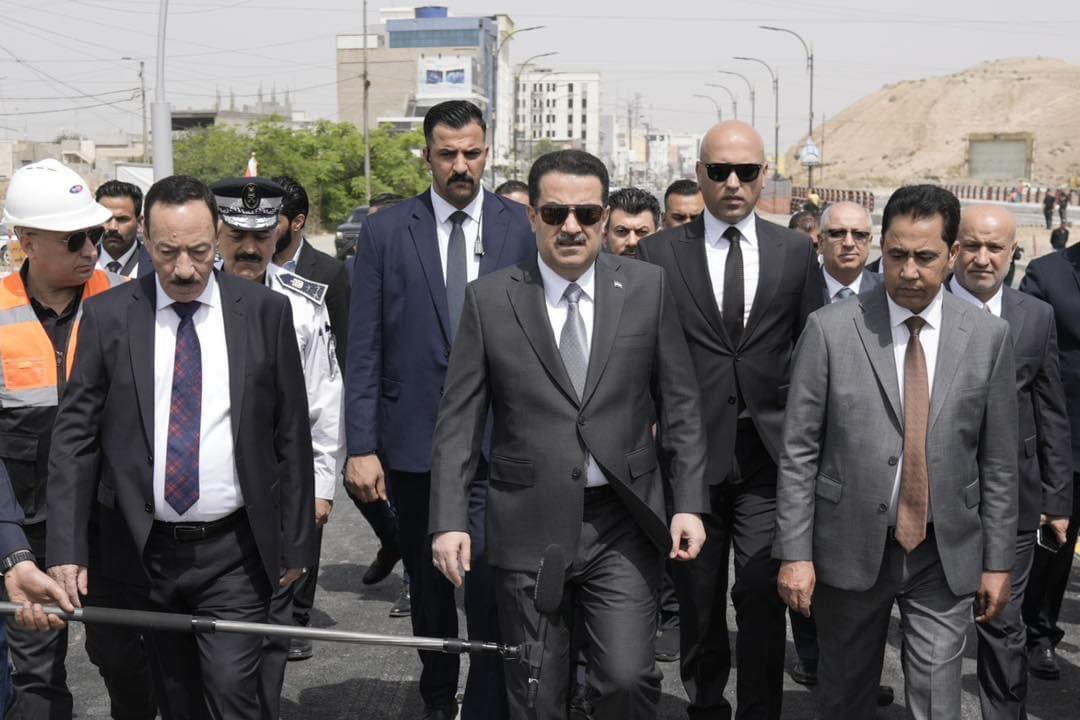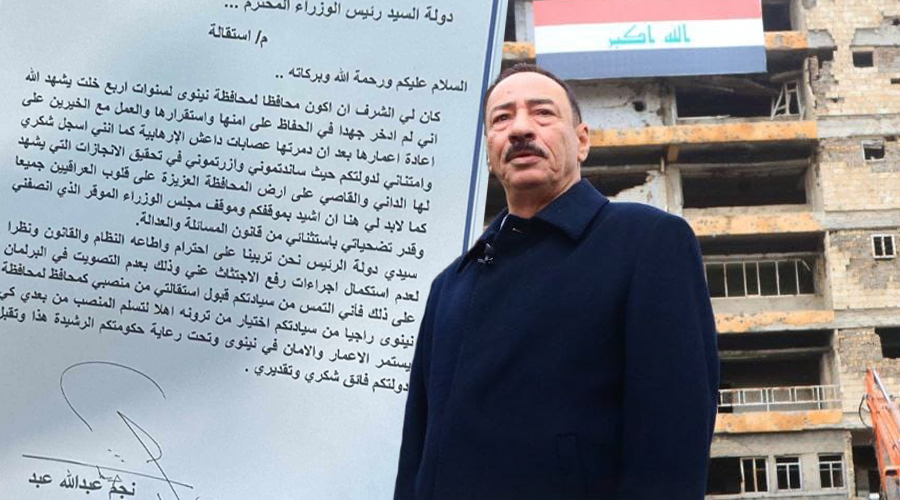Outgoing Nineveh Governor has tried to exclude himself from accountability and justice commission after accusing him of being a member of the Ba'ath Party while serving in the Iraqi army.
After four years as governor of Nineveh, Najm Abdullah al-Juburi submitted his resignation to the Iraqi prime minister on Sunday, November 26, 2023, and half an hour later, Prime Minister Mohammed Shia Sudani accepted his resignation on Facebook.
"Najm Juburi has resigned from the post of governor and submitted it to the prime minister, who has approved it," Shirwan Dubardani, a member of the Iraqi parliament from Nineveh, told KirkukNow.
"We have been brought up to respect and abide by the law. I ask you to approve my resignation because of the completion of the procedures to exclude me from accountability and justice committee (by the government) yet the House of Representatives did not vote in my favor," he said in his resignation letter.
The Iraqi Prime Minister immediately accepted Juburi’s resignation whom met in Baghdad on November 26th.
"Juburi submitted his resignation after the House of Representatives rejected the recommendation approved by the Council of Ministers on October 17 to exclude him from accountability and justice," Sudani said in a statement.
In mid-October, the Iraqi Council of Ministers sent a recommendation to parliament at the request of the Defense Minister to approve the request of al-Juburi and Hamad Nams al-Juburi, Nineveh Police Chief, to exclude them from accountability and justice procedures.
According to Article 12 of the Accountability and Justice Commission Law No. 10 of 2008, “The Council of Ministers has the right to review special cases to return those covered by this law to their jobs in the public interest, upon the approval of the House of Representatives.”
According to a letter leaked by Iraqi media in mid-November, the accountability and justice commission insists on the charges against Najm Juburi and Nams Juburi of being "members of the Ba'ath Party.
Lieutenant General Hamad Nams al-Juburi served as the police commander of Nineveh province until 2020.

L to R: Najm Juburi, Mohammed Shia Sudani, and Abdul Qadir Dakhil. Facebook account of Dakhil
On January 12, 2008, the Iraqi parliament passed the Law of the Supreme National Commission for Accountability and Justice. The new law replaces the earlier framework
governing Iraq’s De-Ba’athification policies, trial and dismissal of members of the Baath party led by Saddam Hussein and the officials of the notorious intelligence and security agencies.
De-ba’athification is the name given to a number of processes initiated by the Coalition Provisional Authority (CPA) shortly after the fall of Iraq’s Ba’athist regime. The first task of its mission was the complete dissolution of the Iraqi army as well as certain organizations including the Iraqi army, the intelligence services, the Olympic committee and others, dissolved by CPA order in May 2003.
The other process was the dismissal of many thousands of civil service employees from their positions by Iraq’s Higher National De-ba’athification Commission (HNDBC).
Najim Al-Jiburi, who was elected governor of Nineveh on November 24, 2019, replaced Mansour Mar’ad on charges of "membership of the Ba'ath Party.”
The resigned governor, Najm al-Jibur, a retired Lieutenant general, was born in 1956 in Nineveh. He held several security and military positions since 1979. Before taking over as governor, he was the commander of joint operations command in the province.
Dubardani believes that Juburi's resignation is "a political issue and has been attempted to remove him for a long time," because he was the commander of a military division during the Ba'ath regime.”
He also said that Abdul Qadir Dakhil will continue as governor of Nineveh until the next elections. Dakhil is a lawyer and executive director of the Nineveh Reconstruction Committee.
The Iraqi provincial council elections are scheduled for December 18, which will form the basis for the formation of local governments, including the election of a new governor.
"Najm Juburi is in Baghdad and his work as governor has ended, so he will be replaced by another person, Abdul Qadir Dakhil, who will remain until the next provincial council elections," Rafaat Sammo, the deputy governor, told KirkukNow on Sunday, November 26.
Dakhel became the fifth governor since the 2013 provincial council elections, following Asil al-Nujaifi until after the 2014 ISIS attacks, followed by Nawfal Hammadi Sultan until March 2019 when the Iraqi parliament removed him, followed by Mansour Mar’ad in November of the same year. He served in office until the nomination of Najm al-Juburi back in November 2019.





